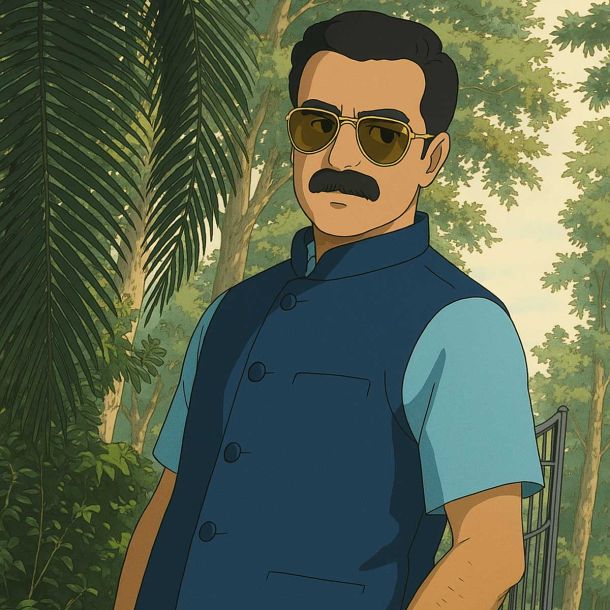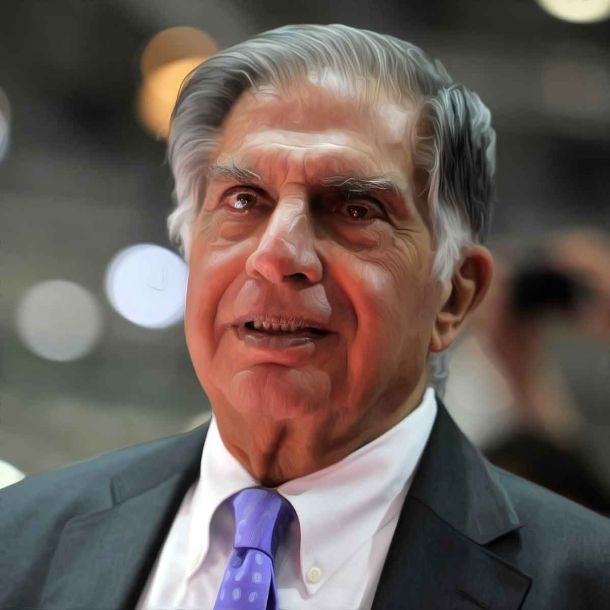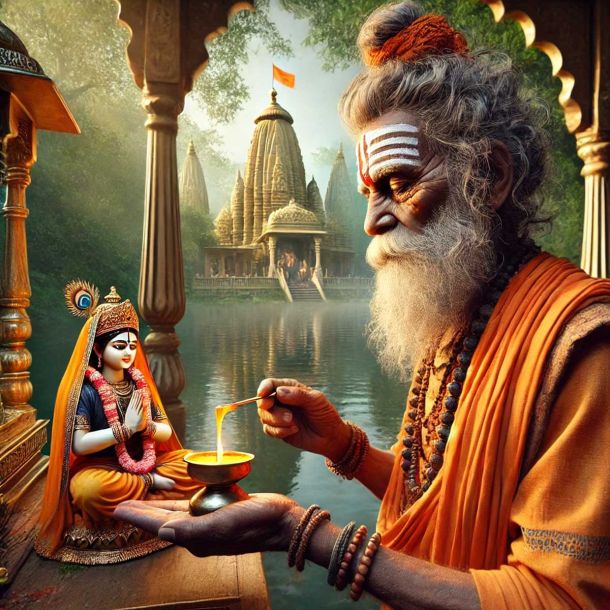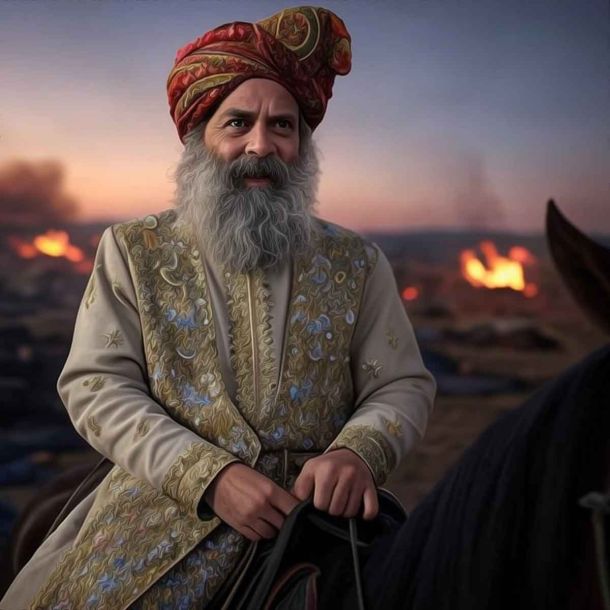More Coverage
Twitter Coverage
Satyaagrah
Written on
Satyaagrah
Written on
Satyaagrah
Written on
Satyaagrah
Written on
Satyaagrah
Written on
Join Satyaagrah Social Media
"Copyright? Copy RIGHT: Steal ideas, steal facts but do not steal words": Did you know the Greek version of Trojan Horse at Troy from Odyssey was an adaptation of the original Indian version of the Trojan White Elephant from Brihatkatha, a Sanskrit play

You know the Greek version of the Trojan Horse at Troy from Odyssey. But do you know the original Indian version of Trojan Elephant from Brihatkatha, a Sanskrit play?
Let's first go through the story from the Brihatkatha, featuring a tomato bath, an ego clash between Kings, and a Trojan White Elephant!
|
Trojan White Elephant – Stories From India
The story starts with a Queen. Mragavati, the Queen of Kausambi. Everything is perfectly normal in this Kingdom – the King was happy, Taxes were flowing in, but people weren’t grumbling too much. In fact, the only one who was grumbling, according to the King was Mragavati. She had this intense desire to take a bath. The King, who didn’t really listen, dismissed his wife’s requests without even fully listening to her. She was asking him to take a bath and to drink tomato juice or something. Naturally, he didn’t want his lifestyle to be dictated by his wife. He had had enough of that growing up from his own parents. He was an adult now and King of the land, it meant he should be able to choose whether or not to bathe.
It’s a pity he didn’t listen to his wife. She wasn’t asking him to take a bath and to drink Tomato juice. She, herself wanted to bathe in Tomato juice. It was an odd request, but her therapist who was seeing her through the Mrigavati’s difficult pregnancy had encouraged her to act out ton these little harmless whims and fancies. It was okay, nothing to worry about. It was only the ordinary citizens of the land paying for excesses like these, just like they were going to pay the therapist’s exorbitant bill.
So anyway, tired of being dismissed over and over by the King, Mrigavati threatened to put him on a diet and exercise regimen and that’s when he finally listened. And understood.
Relieved at not having to subject himself to a bath, the King easily agreed to her request. To keep things simple, he ordered that the swimming pool in their garden be drained of water and replaced with tomato juice.
Sure, it meant stealing from the stockpiles his having to of tomatoes they were saving for a heavily requested tomato carnival at the children’s hospital but the King didn’t care. The ketchup and fries industry would take a hit too, but the King figured that was a small price to pay compared to having to diet and exercise.
So, when the pool was finally ready, Mragavati dived in. She had just come up for air when something shocking happened!
A bird, a huge bird swooped down, grabbed Mragavati in its talons, and flew off with her. I guess the bird which was the size of a house, Mragavati covered all in red looked like meat. The bird had never known meat to wiggle the way Mragavati was wiggling. Upon suddenly realizing that she wasn’t meat, after all, the bird dropped Mragavati. Just like that. Unfortunately for the Queen, in just those few seconds the bird had covered a tremendous distance. She was very far from home.
Luckily though when she fell from the sky, she fell into a pond that was deep enough that she wasn’t really harmed. And the baby inside her seemed okay too. It was kicking like normal.
|
She swam to shore and planned her next steps. She had to find the nearest signpost so she could at least figure out where she was. Then she had to find a way to send a message to Kaushambi. And then get to Kaushambi. And finally resume her tomato juice bath. But first, she needed to find some clothes quickly because she would catch a cold wandering about in her swimsuit. And society’s views of women being what they were in Ancient India, it was unlikely anyone was going to help her, dressed the way she was.
She walked a bit until luckily she found clothes hanging out to dry. That must mean people were nearby, but first, she grabbed the driest of those clothes and draped herself. Next, she hunted about until she saw a small cluster of houses.
She knocked on the first one. The door was answered by a kindly old Rishi and his wife. They took her in and treated her like the royal guest that she was. The rishi and his wife didn’t know their guest was really royal. But they treated every guest like God. Selfless hospitality is just natural in Indian culture. The Rishi’s wife also remarked that it was a marvelous coincidence that she had the exact same saree as Mrigavati. But Mrigavati didn’t flinch.
Rishi’s wife said they might have bought their sarees from the same store. Which was good, because that meant they could explore this common link and find the location of this “Kaushambi” kingdom that Mrigavati talked about. The Rishi and his wife had never heard of that place. It was lucky they were at least speaking the same language. Rishi and his wife had never heard of tomatoes before. If they also felt it strange that Mrigavati needed to continue bathing in this “Tomato” juice, they were careful not to show it.
Over the next few days, all of their efforts to locate Kaushambi were in vain. They searched, and they quizzed every passerby and traveler but no one had heard of Kaushambi.
More days passed until finally, Mrigavati gave birth to a baby boy. She named him Udayana. The boy grew up and was everything you might expect from the hero of a folk tale – intelligent, charming, and wise. While growing up, he also had free education. The rishi and his wife had provided years of free boarding and lodging to Mrigavati and her son. But they also provided the boy with an education. You might appreciate that especially given the rising costs of education, housing, and food prices these days. But that wasn’t all. There was a bonus. The Rishi had a few tricks up his sleeve. He taught the boy one of those tricks. And that was how to control elephants. The answer was music.
That shouldn’t surprise you if you’ve read Harry Potter or if you’ve read the Tintin comics. Hagrid plays the flute to manage his massive three-headed dog – Fluffy, and Tintin plays the trombone to control elephants. Just like that, Udayana learned that by playing very specific notes on his veena, which is an Indian musical instrument, Udayana could get an elephant to do anything.
One of the first things he did as he mastered the skill was to summon his elephants and ask them for tomatoes, loads of tomatoes. That would finally make his mother shut up.
The Rishi, the expert in Elephant communication, smacked his forehead and wondered why he didn’t think of asking the elephants. He could have avoided 15 years of nagging from his guest about Tomato juice baths. Truly he had shown great restraint to continue to be hospitable. Maybe that’s why he hadn’t been thinking rationally.
Or maybe this time the student was just a step ahead of the teacher. Udayana certainly showed that when he played more notes on the Veena, asking the elephants if they knew the path back to Kaushambi. The Elephants, whoever avid travelers, knew exactly where Kaushambi was.
It was a nice holiday city, they said. A little commercial. A decent place to get a good bite to eat. They rated it four stars. They would have rated it five stars if the grass had been just a little bit greener.
Udayana was on the Veena again, giving out more commands. Soon, Udayana and Mrigavati were on one of the elephant’s backs, making the long trip back to Kaushambi. Mrigavati agreed to leave only after she realized that Kaushambi probably still had her tomato juice swimming pool.
|
It took a few days. And when they got there, they introduced themselves to the crowd. Now, you might expect that people would be a little suspicious. A Queen disappeared 15 years ago. And now this lady appeared with a boy who claimed to be the heir to the throne? But the people of Kaushambi easily believed Mrigavati and Udayana’s story. The King had gotten a little too old to remember Mrigavati. But the mention of the Tomato juice swimming pool rang a faint bell, and he used that as an excuse to give up his throne to Udayana. He had had enough of ruling and was desperately looking forward to returning to a life of quiet retirement full of Golf and fishing.
The gamble paid off for Kaushambi because, under Udayana’s leadership, the Kingdom prospered. Udayana was able to use his elephants to control everything which made it impossible to defeat his armies in battle. Because Elephants were the equivalent of tanks in Ancient Indian warfare.
A neighboring King Pradyota of Ujjain was getting increasingly worried about Udayana’s suddenly growing influence. Pradyota and his ministers hatched a plan. So, Udayana could control elephants, yeah? His strength was exactly what they were going to exploit as a weakness.
A couple of days later, some people rushed into Udayana court to report something remarkable. It was a white elephant. Literally. A white-colored elephant. And it was spotted in the forest that lay between Kaushambi and Ujjain.
Udayana was excited by this news. He had all kinds of elephants, and they did a lot of the work for him. But he’d never had a white elephant before. He quickly summoned his veena grabbed an elephant and went off into the forest. He had some bodyguards naturally but not his entire army. And that was exactly what King Pradyota had hoped for.
Udayana found the elephant. Which wasn’t doing much. It seemed very much like a statue. Except once or twice it moved its trunk and tail.
Udayana got down from his own elephant, took his veena, and sat close to where the white elephant was. He started playing his veena, but the white elephant did not move. Something was off, maybe the white elephant couldn’t hear properly? Udayana tried again. He gave the elephant the command to nod its head. A simple command really. It just went “Sa re ga ma” on his veena. But it didn’t work.
Udayana wondered if maybe the command was “Sa ga re ma”? “Sa Re ga ma” seemed to be the command for the elephant to open its belly and let soldiers come tumbling out, and the elephant didn’t nod its head yet.
Wait a minute, thought Udayana. An elephant with a belly full of soldiers? Soldiers dressed in the Ujjain army uniform? “Uh oh,” he realized what was going on. But it was too late now.
Udayana was taken, prisoner. His 3 bodyguards were no match for the 20 Ujjain soldiers hidden in the fake elephant.
Udayana was promptly put into prison in Ujjain. He was regularly visited by Pradyota who only came there to gloat. And to ask him for the secret of controlling elephants.
Udayana’s reaction initially surprised Pradyota. Yes, Udayana would love to share the secret with Pradyota. All that Pradyota had to agree to do was to admit that Udayana was better than him.
Not much of an ask really, but Pradyota had one BIG ego. He refused to admit anything of the sort. Upon realizing that Udayana was willing to teach his skills to anyone who could accept Udayana’s superiority, Pradyota sent his own daughter. Her name was Vasavadatta.
Vasavadatta politely admitted to Udayana that as he was about to become her teacher, she gladly accepted that he was better than her. Udayana immediately agreed to teach her. “See, that was easy” Vasavadatta whispered to her Dad.
After that Vasavadatta had private lessons from Udayana every day. In a part of the prison where no one else could hear them.
This went on for a while. And while Pradyota was convinced that his daughter had almost learned the full secret, the reality was a little different. Udayana wasn’t teaching anymore. And Vasavadatta wasn’t really learning Elephant-controlling spells on the Veena. She was learning about Udayana, and Udayana was learning about her. The two had fallen hopelessly in love.
The couple decided they were made for each other. And that they must escape back to Kaushambi. That was the only way out. Luckily for them, the path forward was easy. Vasavadatta herself suggested it, but Pradyota himself had given her the most important tool here.
Vasavadatta spent the next few days with Udayana planning and writing out exactly the sequence of notes that would get her to freedom.
So finally the appointed day arrived when she was going to demonstrate her new skills to her very proud father. In fact, Pradyota was a good father. He clapped and encouraged his daughter even when she seemed to misdirect the tested elephant so badly. She had it smash the prison walls instead of smashing Udayana who was behind them. But Pradyota cheered on. It was only after the elephant picked up first Udayana and second Vasavadatta herself, and zoomed off in the Kaushambi direction, that Pradyota realized that he had been had. His own daughter had betrayed him. He sighed and wondered where he’d gone wrong in parenting her.
That’s where the story ends. Kinda. There is a bit more to Udayana and Vasavadatta, but that’s a story for another time.
|
Now, Salvatore Babones in Quadrant magazine wrote an article "Krishna’s Heel and Trojan Elephants" in which he mentions below facts -
Western experts—say that the story of the Trojan elephant was adapted from the Greek original, mainly on the argument that the Pratijnayaugandharayana seems to be roughly contemporary with Alexander’s invasion of India. In fact, we’re lucky to have the Pratijnayaugandharayana at all: the only known copy was discovered in 1909 in a temple at the southern tip of India. If that sounds pretty tenuous, consider the fact that we also have only one original Greek source for the Trojan Horse story. It consists of just a few lines from Homer in which Odysseus brags that
When Ilion in the horse received her doom,
And unseen armies ambush’d in its womb,
Greece gave her latent warriors to my care,
’Twas mine on Troy to pour the imprison’d war.
Everything else we know about the Trojan horse comes from Virgil’s Aeneid, which wasn’t written until the time of Augustus. Absent these cryptic lines from the Odyssey, the experts might have traced the Trojan horse back to the Indian elephant. In any case, no one really knows how old the story of the Trojan elephant might be; it might very well predate the version in the Pratijnayaugandharayana, just as the Trojan Horse predates the Aeneid. The Indian version certainly seems more credible than the Greek one: a camouflaged elephant hidden deep in the jungle has something of the ring of reality to it, and soldiers seem more likely to hide in the belly of an elephant than in a wooden horse on wheels.
Of course, there’s no reason to assume that one story is derived from the other, even if they are indeed two versions of the same story. They may both be descended from an even older original. Greeks, north Indians, Persians, and most Europeans speak languages that are derived from a common “Indo-European” root language, and thus presumably share a common heritage as well. We don’t have any meaningful records of what Celts, Slavs, or even Persians were thinking more than three thousand years ago, but the Bronze Age epic poems of the Greeks and the Indians have survived. And if you strip out the extraneous details to expose the basic motive forces of their plots, they are remarkably similar.
I would agree with Salvatore Babone that these stories descended from an even older original because I found the same Trojan White Elephant story from a podcast sfipodcast.com.
Bṛhatkathā(Sanskrit, "the Great Narrative") is an ancient Indian epic, said to have been written by Guṇāḍhyain a poorly-understood language known asPaiśācī. The work no longer exists but several later adaptations — the Kathāsaritsāgara (कथासरित्सागर), Bṛhatkathāmañjarī (बृहत्कथामंजरी) and Bṛhatkathāślokasaṃgraha (बृहत्कथाश्लोकसंग्रह) in Sanskrit, as well as thePeruṅkataiandVasudevahiṃḍiin vernaculars — make commentary on the piece.
The date of its composition is uncertain. According to testimonials by later Sanskrit poets such as Daṇḍin, Subandhu, andBāṇa, the Bṛhatkathāexisted in the 6th century CE. According to other estimates, it predates that period by several more centuries. For example, if the story of Udayana by poet Bhāsa (and also later by Harsha in Ratnavali) was inspired by Brihatkatha, it had to be older than the time of Bhāsa — itself uncertain, but before the 3rd century CE.
The earliest extant reference to the Bṛhatkathā seems to be that of Subandhu (600-700 CE) in Vasavadatta. Bāṇa (7th century) refers to it in his romances Harshacharita and Kadambari.A reference by Daṇḍin in his Kavyadarsha is problematic because it describes the Bṛhatkathā as being marvelous and as composed in the vernacular of the bhūtas (evidently Paiśācī). However, the information appears to be second-hand. A fuller reference is provided in Dashakumaracharita, whose author is possibly not the same Daṇḍin. Later references include the Daśarūpa of Dhanamjaya, Nalacampū of Trivikramabhaṭṭa, and Āryāsaptaśatī of Govardhanācārya. A Cambodian inscription (c. 875) expressly mentions Guṇāḍhya and his aversion to Prakrit. The earliest extant Kannada work on grammar and poetics, Kavirajamarga by Nripatunga (c. 850), mentions a now-lost Sanskrit version of Bṛhatkathā by the author Durvinita. We can safely assume the existence of a romantic work by Guṇāḍhya before 600 CE
|
Pratijnayaugandharayana
Pratijnayaugandharayana (Sanskrit: प्रतिज्ञायौगन्धरायणम्, Pratijñāyaugandharāyaṇam) (English: The Pledge of Minister Yaugandharāyaṇa) is a Sanskrit play in four acts written by the ancient Indian poet Bhāsa. It is the oldest extant political play of India and the prequel to Bhāsa's Svapnavasavadattam. These plays were written by Bhāsa on the account of Udayana, king of Vatsa (Kaushambi).
Throughout the play, Yaugandharayana, minister of Udayana, takes two vows which are ultimately fulfilled.
Pratijnayaugandharayana was rediscovered, along with Bhāsa's 12 other plays, in 1912 by Indian scholar T. Ganapati Sastri. As with other plays of Bhasa, the name of the author does not appear in the prologue of the play or anywhere else in the extant manuscripts. But a verse from the play is attributed to Bhasa in Subhashitavali, a 15th-century anthology compiled by Vallabhadeva.
The play is based on Udayana's story in the ancient Indian epic Brihatkatha, written by Gunadhya
The plot is set before the events of Svapnavasavadattam. It describes the imprisonment of Vatsa King Udayana under Pradyota, King of Ujjayini, and the events in Ujjayini, following his capture.
While out on a hunting trip, Prince Udayana is tricked into being captured by his enemy, King Pradyota. Pradyota's daughter, Vasavadatta, takes music lessons from the captured prince, and they fall in love. Yaugandharayana, Udayana's minister, helps them and Udayana elopes with Vasavadatta.
The story is presented through action and narration—by minor characters.
|
References:
Brihatkatha
Pratijnayaugandharayana
TrojanWhiteElephant
quadrant.org.au
 Support Us
Support Us
Satyagraha was born from the heart of our land, with an undying aim to unveil the true essence of Bharat. It seeks to illuminate the hidden tales of our valiant freedom fighters and the rich chronicles that haven't yet sung their complete melody in the mainstream.
While platforms like NDTV and 'The Wire' effortlessly garner funds under the banner of safeguarding democracy, we at Satyagraha walk a different path. Our strength and resonance come from you. In this journey to weave a stronger Bharat, every little contribution amplifies our voice. Let's come together, contribute as you can, and champion the true spirit of our nation.
 |  |  |
| ICICI Bank of Satyaagrah | Razorpay Bank of Satyaagrah | PayPal Bank of Satyaagrah - For International Payments |
If all above doesn't work, then try the LINK below:
Please share the article on other platforms
DISCLAIMER: The author is solely responsible for the views expressed in this article. The author carries the responsibility for citing and/or licensing of images utilized within the text. The website also frequently uses non-commercial images for representational purposes only in line with the article. We are not responsible for the authenticity of such images. If some images have a copyright issue, we request the person/entity to contact us at This email address is being protected from spambots. You need JavaScript enabled to view it. and we will take the necessary actions to resolve the issue.
Related Articles
- Kartar Singh Sarabha - The Freedom fighter who was Hanged at the age of 19 and inspired Bhagat Singh
- Freedom struggle of Gurjars against Britishers at Koonja in 1824: 100s of Gurjars Martyred and 100s Hung in Single Tree
- A new symbol of Hindutva pride, Shri Kashi Vishwanath Temple Corridor
- Unsung Heroine Pritilata Waddedar, Who Shook The British Raj at the age of 21
- After removing 500 tons of garbage, 18th-century old stepwell to soon serve with clean, fresh groundwater gushing from 53 feet deep water stream: Nalla Pochamma Temple, Telangana
- The forgotten temple village of Bharat: Maluti
- Bhagwan Parashurama – Chiranjeevi Avesha avatar of Bhagwan Vishnu
- “Dharma is law in its widest sense—spiritual, moral, ethical and temporal": How Chanakya's Arthashastra shaped the Telling of Ancient Indian History and should be read simply for its sheer brilliance in the area of statecraft and economics
- History books should teach India’s civilisational, linguistic heritage, not unfounded claims: Parliamentary Committee meets to discuss NCERT books
- An Artisan Heritage Crafts Village: Indigenous Sustainability of Raghurajpur
- "Uncover a hidden aspect of history": The mystery surrounding King Vikramaditya's reign and his illustrious Navaratnas, journey through time, exploring the legends of Kalidasa to Vetala Bhatta, unraveling a historical enigma from the 1st century BCE
- 21-yr-old girl Bina Das shot Bengal Governor in her convocation programme at Calcutta University, got Padma Shri but died in penury
- Hindu seers and sages could tap sources of universal spirituality because they did not start with an a priori assumption of an Almighty God whom man had to fear and obey in awe and objection - Defence of Hindu Society
- "Aum Mahadevaya Namaha - The Great Universal God": Sanatana Dharma forces human mind, time and time again, to accept the fact that Divine is all that exists, both clean and unclean, pure and impure, auspicious and inauspicious
- The Balliol college at the University of Oxford has dedicated a new building after Dr. Lakshman Sarup, the first candidate at Oxford to pass his thesis for a Doctorate of Philosophy (DPhil) degree on Sanskrit treatise on etymology
























